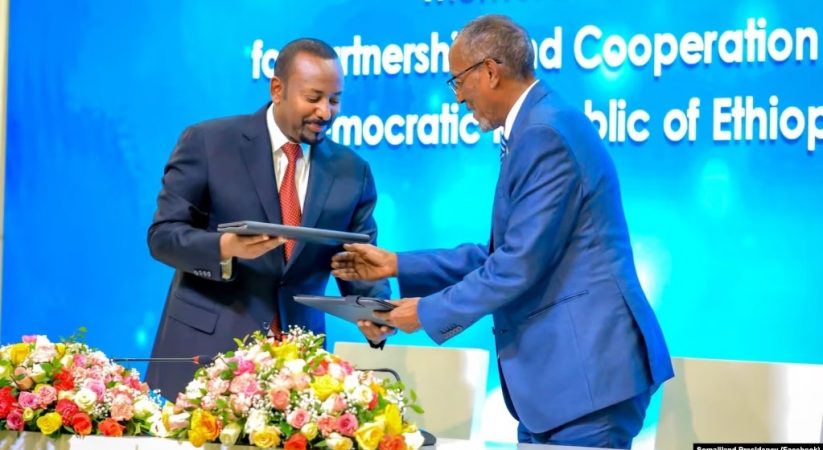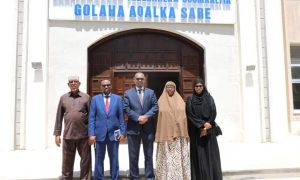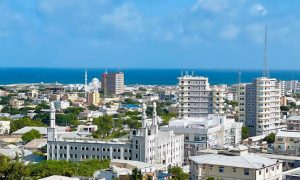
Ethiopia and Somaliland have signed a memorandum of understanding (MOU) that grants Ethiopia access to the Red Sea port and a military base in exchange for recognition of Somaliland’s independence. The deal, announced on 1 January 2024, has sparked outrage from Somalia, which considers Somaliland as part of its territory and has vowed to defend its sovereignty by any legal means. The deal has also raised questions about Ethiopia’s motives and intentions in the Horn of Africa, where it has been seeking more influence and sea access.
Somaliland, a former British protectorate with 4.5 million people, declared its independence from Somalia in 1991, following a civil war that toppled the dictatorship of Siad Barre. However, Somaliland remains unrecognized internationally and has been struggling to gain legitimacy and development. Its main goal in the port deal with Ethiopia is to achieve international recognition, which it hopes will boost its economy, security and democracy.
Ethiopia, a landlocked country with a population of over 100 million, has been looking for more access to sea ports for its trade and development. Ethiopia was cut off from the coast after Eritrea seceded and declared independence in 1993, and since then Ethiopia has relied mostly on the port of Djibouti for its imports and exports. Ethiopia has also been trying to improve its relations with its neighbours, especially Eritrea, with whom it fought a border war from 1998 to 2000. In 2018, Ethiopia’s Prime Minister Abiy Ahmed initiated a peace process with Eritrea, which led to the reopening of diplomatic ties and border crossings. Abiy has also been praised for his reforms and efforts to promote regional integration and cooperation.
However, the port deal with Somaliland has cast doubt on Ethiopia’s sincerity and credibility in the Horn of Africa. Somalia, which has been trying to rebuild its state and institutions after decades of civil war and terrorism, has condemned the deal as a violation of its sovereignty and territorial integrity. Somalia has also accused Ethiopia of interfering in its internal affairs and undermining its unity and stability. Somalia has recalled its ambassador to Ethiopia and appealed to the international community, including the United Nations, the African Union, the Arab League and the regional bloc IGAD, to stand by its side and reject the deal.
The deal has also drawn criticism from other countries in the region, such as Egypt and Turkey, who see it as a threat to their interests and influence in the Horn of Africa. Egypt, which relies on the Nile River for most of its water supply, has been wary of Ethiopia’s construction of a giant dam on the river, which it fears will reduce its share of the water. Turkey, which has been investing and providing humanitarian aid in Somalia, has also expressed its support for Somalia’s sovereignty and territorial integrity.
The deal has also exposed the ambiguity and inconsistency of Ethiopia’s position on Somaliland’s recognition. While Somaliland’s President Muse Bihi Abdi claimed that the deal involved 20 km of sea access in exchange for diplomatic recognition, Ethiopia’s statement made no mention of recognition, only committing to “advance mutual interests through cooperation on the basis of reciprocity”. Ethiopia’s adviser Redwan Hussein said that the deal was a “step ahead in the right direction for this and generations to come”, but also added that the details of the memorandum would be formalized in a follow-up meeting in a month.
As expected from previous dealings Eritrea had with the politically “immature” Ethiopian PM Abiy, Addis Ababa is now backtracking by saying it would “make an in-depth assessment towards taking a position regarding the efforts of Somaliland to gain recognition”. This suggests that Ethiopia is not fully committed to recognizing Somaliland, but rather using it as a bargaining chip or a leverage in the region. As far as Somaliland is concerned, the port deal is off if no diplomatic recognition is provided by Ethiopia.
The port deal between Ethiopia and Somaliland has created more tensions and uncertainties in the Horn of Africa, a region that is already plagued by conflicts, poverty and instability. The deal has also challenged the international norms and laws that govern the recognition of states and the respect of sovereignty and territorial integrity. The deal has also raised ethical and moral questions about the role and responsibility of Ethiopia, as a regional power and a member of the international community, in promoting peace and development in the Horn of Africa.
The deal has also highlighted the need for dialogue and negotiation among the stakeholders in the region, especially Somalia and Somaliland, who have agreed to resume talks in Djibouti after years of stalemate. The talks, which are facilitated by the United Nations, the African Union and IGAD, aim to address the issues of security, cooperation and political settlement. The talks are also crucial for the future of Somalia.
The port deal between Ethiopia and Somaliland is not only a matter of economic and strategic interests, but also a matter of identity and dignity for the people of the Horn of Africa. The deal has revealed the aspirations and frustrations of Somaliland, which seeks recognition and respect for its self-determination and achievements. The deal has also exposed the challenges and dilemmas of Ethiopia, which seeks more access and influence in the region, but also faces criticism and suspicion from its neighbours. The deal has also shown the importance and urgency of Somalia, which seeks to restore its sovereignty and unity, but also needs to address its internal divisions and conflicts.
The port deal between Ethiopia and Somaliland is a test for the Horn of Africa, a region that has the potential to become a hub of trade, development and cooperation, but also the risk to become a hotspot of violence, instability and fragmentation. The port deal between Ethiopia and Somaliland is a call for the Horn of Africa, a region that needs more dialogue, understanding and solidarity, not more provocation, confrontation and isolation.
Sources: SONNA – Opinion : Abdiqani Abdullahi
_____________________________________________________________________________________Xafiiska Wararka Qaranimo Online | Mogadishu, Somalia
_____________________________________________________________________________________Advertisement
_____________________________________________________________________________________







